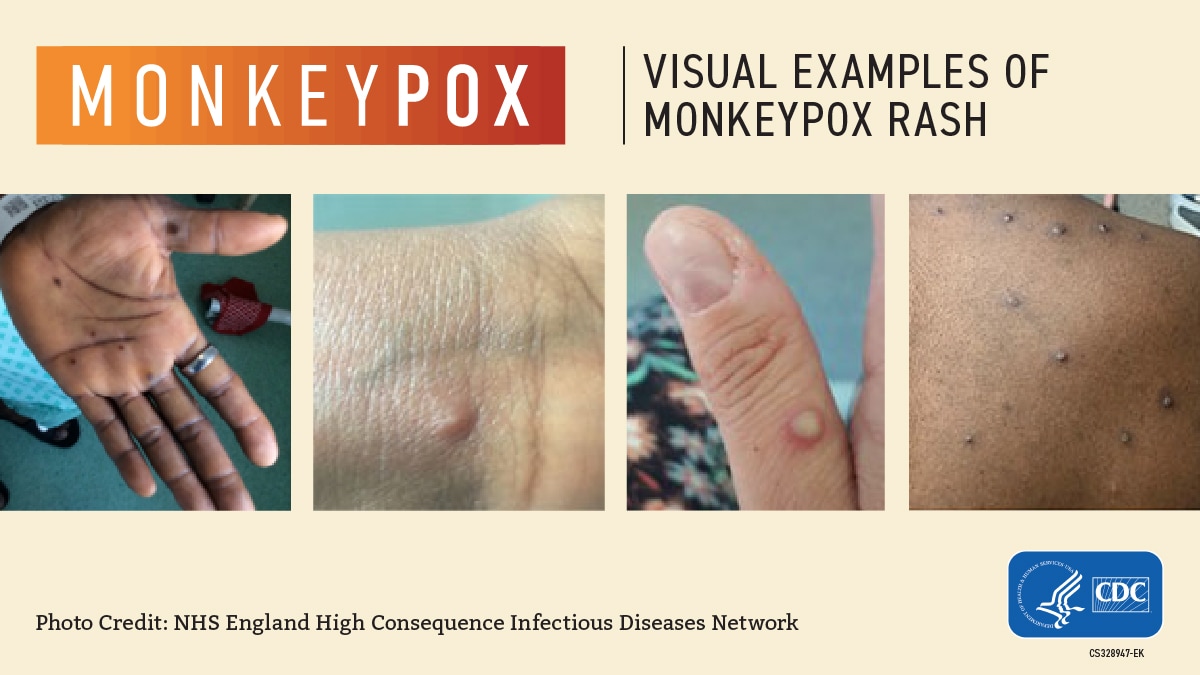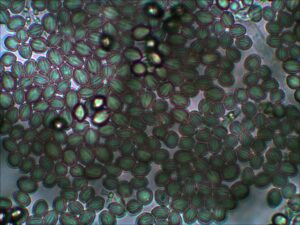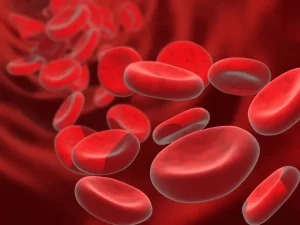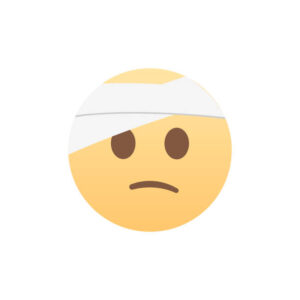What is monkeypox?
Monkeypox is a viral disease caused by a pox virus. First, it is not a sexually transmitted virus and is transmitted via close, personal contact. Symptoms begin within three weeks of exposure. The risk of getting monkeypox is still very low.
Signs & Symptoms
- Headache
- Fever
- Exhaustion
- Aching muscles
- Chills
- Swollen lymph nodes
- Sore throat
- Congestion
- Cough
- Rash
Monkeypox Rashes

The rash may appear on the genitals or anus, feet, hands, chest, mouth, or face. It can also affect the eyes and throat. It can be painful and itchy and appear like lesions that progress to pustules and scabs. The rash will develop 1 to 4 days after flu-like symptoms begin. Rashes may be confused with symptoms of other infections, like chickenpox or molluscum contagiosum.
2022 Outbreak
Currently, monkeypox has spread across many countries, including the United States. As of August 1st, 2022, there are over 5800 cases in the US, including 827 in California. Few of those infections have affected kids and teens in the United States.
Please get in touch with your local health department if you’ve been exposed to monkeypox. For patients in Long Beach, that would be the City of Long Beach Health & Human Services.
Prevention
- Avoid gatherings with close, personal contact
- Wash hands, shared materials, and fabrics
- Avoid touching rashes
- Avoid contact with your pet who may have been exposed.
- Get vaccinated
Who Should Get Vaccinated?
Vaccines are not widely available. Monkeypox is still rare, and not everyone needs to be vaccinated. Young children, kids with eczema, kids with skin conditions including eczema, and those who are immunocompromised are at an increased risk of getting sick.
It can be transmitted from a pregnant person to the fetus; therefore, consider getting vaccinated if you are pregnant.
Treatment
Most infections will go away on their own. However, if your child has severe disease, complications, is under eight years old, is immunocompromised, or has a history of skin infections, they may be considered for treatment.
- Tecovirimat is an antiviral medication currently used to treat monkeypox in kids and adults.
- Post-exposure prophylaxis (PEP) is used if your child has been exposed to monkeypox.
- Vaccines
- Antivirals
- Immunoglobulin
Common Misconceptions of Monkeypox
First, the name monkeypox suggests that the disease is transmitted from monkeys. Indeed, this disease was first discovered in a colony of monkeys; however, anyone can get monkeypox. It is shared among humans, as well as animals.
Second, it is not a sexually transmitted infection. This infection is stigmatized, though it doesn’t need to be. It spreads via close, personal contact. Any suggestion that this disease only affects those in the gay community is wrong. Anyone can get monkeypox.
Finally, for questions or comments, please respond to this page or contact us!







